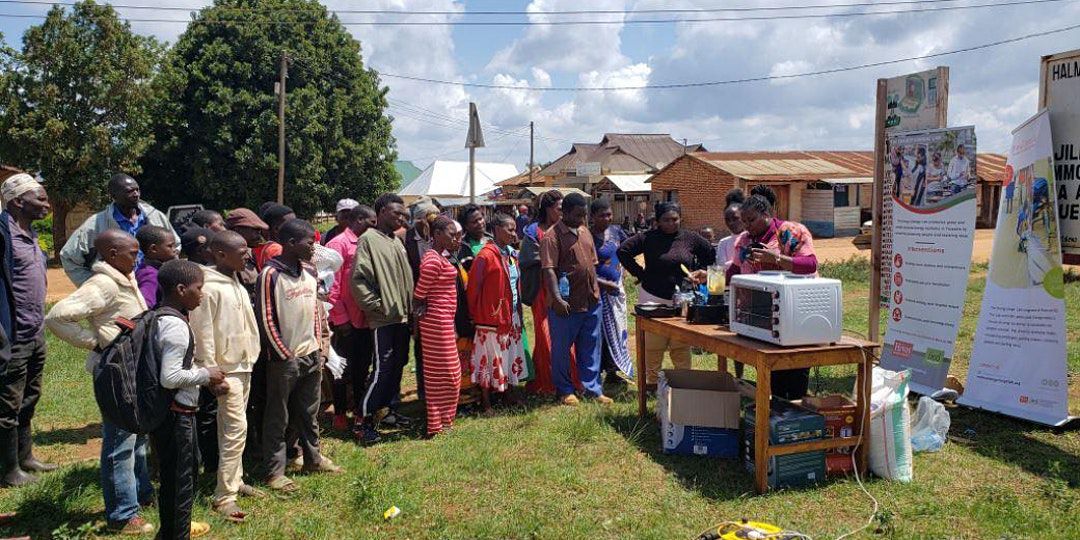Date: November 30, 2020
Time: 13:00 – 14:00 CET
Location: Virtual event. Register here. (CLOSED)
This IIED Debates event will ask how can we get energy finance to small community businesses in sub-Saharan Africa?
About this Event
Electricity drives economic development. But many small community-level businesses and smallholder farmers in rural parts of sub-Saharan Africa need more access to affordable energy financing to thrive. This IIED Debates online event on Monday, 30 November will explore what mechanisms can enable community businesses and farmers to access the financing they need to grow their businesses by using energy productively.
More ways are emerging to help businesses across sub-Saharan Africa get the energy finance they need to grow but small businesses in rural communities are still missing out. The uptake of ‘productive use of energy’ (PUE) – energy that can help these community-level businesses increase their income and productivity – is not yet happening at any scale.
Current finance paths such as table banking and group lending can enable households with minimum resources to begin investing. Savings and Credit Co-Operative Societies (SACCOs) offer avenues for larger pots of money, but most women face additional barriers in accessing larger amounts of affordable financing.
Lenders to both community businesses and farmers see many risks in offering financial products to smaller opportunities. Businesses themselves may lack knowledge on finance products and be risk adverse to borrowing.
Many energy providers can be more proactive in supporting businesses to use PUE but a cross-sectoral approach is required, as well as more commitment.
What approaches to financing community businesses can connect different finance supply programmes, to better target and local business types that use energy? How can these address differing perceptions and the needs of women-led versus male-led businesses?
This online IIED Debates event on Monday, 30 November partners with Tanzanian organisations TANGSEN, Solar Sister, and gender and energy network ENERGIA with Hivos to explore the trends in financing community businesses using energy in Tanzania and in sub-Saharan Africa more largely.
Driven by local organisations and voices from the ground we will explore what opportunities exist that community businesses and smallholder farmers can leverage for productive uses of energy. What is the role of energy providers and finance institutes in supporting PUE? And finally, has COVID-19 affected perceptions to accessing finance?
About the speakers
- Thabit Mikidadi is the program and communications manager at Tanzania Gender and Sustainable Energy Network (TANGSEN)
- Sheila Oparaocha is international coordinator and programme manager at ENERGIA
- Fatma Muzo is the country director at Solar Sister in Tanzania
- Kevin Johnstone is a researcher in the Shaping Sustainable Markets research group at IIED
- Winnie Terry is the executive secretary of the Tanzania Association of Microfinance Institutions (TAMFI)
- Halidi M. Mbwana is the investment and facilitation officer at the National Economic Empowerment Council (NEEC)
About the series
This event is part of the IIED Debates series. Through the convening of expert speakers and external stakeholders, IIED brings together an international community to discuss critical issues.
IIED Debates encompass both physical and digital events, including critical themes, breakfast debriefs and webinars. These events are public and are hosted regularly throughout the year in our London and Edinburgh offices and online.
About attending
Webinars are online workshops that people can attend via the internet from their desk or portable internet device.
This webinar will use the Zoom video conferencing platform. For those who have not attended a Zoom webinar before, please read this guide to participation as an attendee.
The event will be recorded to be distributed publicly afterwards. By registering for this event, you agree to give your consent for this.
The information you provide will be held on our database to process your booking. We do not share data with any third parties. We may contact you in the future about other IIED events. Please let us know if you do not want to receive any further information from us.
Image: The Energy Change Lab, a programme of IIED and Hivos, demonstrates various productive use of energy appliances to community members in Matembwe Village, Njombe, Tanzania in November, 2019 (Photo: Sisty Basil)







